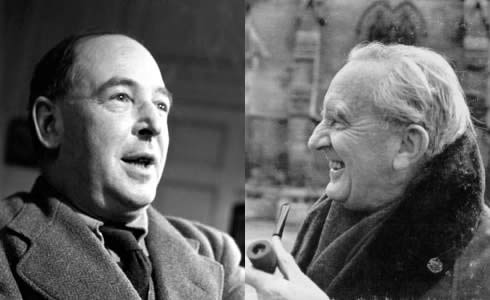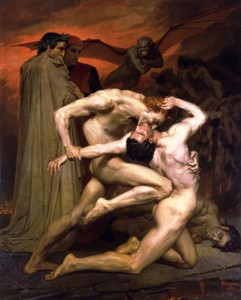 The conversation erupted on my Facebook page, debating the eternally recurring subject of unjust Nobel awards. It’s recently been revealed that J.R.R. Tolkien had been snubbed by the Nobel committee because his writing wasn’t up to snuff.
The conversation erupted on my Facebook page, debating the eternally recurring subject of unjust Nobel awards. It’s recently been revealed that J.R.R. Tolkien had been snubbed by the Nobel committee because his writing wasn’t up to snuff.
Other poor Nobel choices came to mind among my FB friends – the 1971 Nobel to Pablo Neruda over Tolkien? Or over W.H. Auden, for that matter? Or Jorge Luis Borges? Or Vladimir Nabokov?
Another Nobel laureate, Octavio Paz called Neruda “the greatest bad poet of the century,” a much-repeated soundbite that sticks. Yet Nobelist Gabriel García Márquez called him “the greatest poet of the twentieth century – in any language.” To which one can only reply Osip Mandelstam, W.H. Auden, Marina Tsvetaeva, T.S. Eliot, Czeslaw Milosz.
Our view of Neruda is now inevitably colored by his Stalinist politics.
Apologists say the Stalinists couldn’t possibly have known about the murderous excesses of the U.S.S.R. Couldn’t possibly have known? Despite a generation of slaughtered, imprisoned and exiled writers from Russia? Despite a man-made famine that starved millions? Despite the writings of Robert Conquest? If Neruda had any questions, all he had to do was ask Czeslaw Milosz, who defected in 1950. Instead, he infamously penned a denunciation of Milosz as “The Man Who Ran Away.”
There is nothing so dangerous to us as the thing we do not want to be true, the thing we turn our backs to.

Not bad for a dumpy-looking guy
In time for the 2004 Neruda centenary, Stephen Schwartz (not a literary critic, but a conservative political commentator), wrote in a seminal article that has been cited all over the internet:
There is probably no more chance of halting this current binge of Neruda worship than there is of banishing the cicadas, but, still, the truth does need to be said: Pablo Neruda was a bad writer and a bad man. His main public is located not in the Spanish-speaking nations but in the Anglo-European countries, and his reputation derives almost entirely from the iconic place he once occupied in politics – which is to say, he’s “the greatest poet of the twentieth century” because he was a Stalinist at exactly the right moment, and not because of his poetry, which is doggerel.
So does Neruda’s poetry have a future?
Eternally. On Facebook, my friend Kevin assured me that Pablo Neruda has enduring market value in the Spanish-speaking world for his … pick-up lines. Not bad for a dumpy-looking guy (see right).
Hard to argue that point – an award-winning film was made on precisely that subject, Il Postino/The Postman. The plot: nerdy Italian postman wants to pick up pretty girl. He befriends the exiled Neruda and voilà! Plagiarism is born in a small Italian village.
As Schwartz himself admitted:
Yes, his work is still plagiarized by teenage boys in Latin America, who see his Twenty Love Poems and a Desperate Song and figure there is nothing wrong with borrowing from it–just as one poem in the book is itself stolen from Rabindranath Tagore – and presenting its overwrought lines to their girlfriends. But if those boys grow up to be serious writers, they leave Neruda behind.

No luck with the line
But Kevin had a story of his own. During a summer studying at the London School of Economics, an attractive young Spanish woman caught his eye. How to attract her attention? His friend Pedro (there were a lot of Spaniards around that summer) said it was very important to open with a sure-fire line. Neruda was the ticket.
A dormitory lunchroom discussion of Neruda and the art of line-by-line seduction followed. The young woman demanded an example of a florid Iberian pick-up line: “Let me hear it.”
Kevin recalled the line Pedro had taught him: “The sentence would be something like “Oh, cielito mío, que Dios me dió” [Oh, my little heaven, given to me by God].
“It’s the cheesiest thing in the world. And she said, ‘Wow, that’s really good.’”
Did he get the date? No. But he learned his lesson: “That’s how it’s done in España.”











